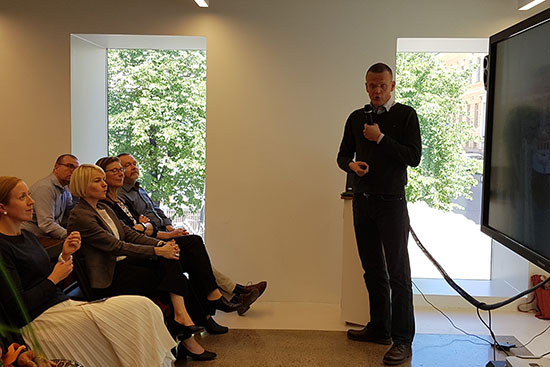The salmon populations in the rivers in the North of Finland are going through changes. Pink salmon and mackerel are some of the most recent potential threats.
World Oceans Day on 8 June was celebrated in Helsinki with a seminar on Arctic oceanography. Research Professor Jaakko Erkinaro of the National Resources Institute Finland talked about the salmon rivers that connect Finland to the Arctic Ocean.
River Teno produces great Atlantic salmon catches. The salmon is a very versatile fish, and there are some 30 genetically very diverse salmon populations in the tributaries and the main stem of River Teno. Some populations are doing fine, others poorly.
“This is very important for research and also for fish management. The Agreement on joint fishing regulations between Finland and Norway is unique in that it takes the genetic diversity into consideration”, explains professor Erkinaro, a top expert on migratory fish.
Thousands of tourists come to fish to Teno River every year. The past years have not been great for fishing, though there are always some giant individuals to surprise the recreational fisher.
Some changes taking place in the fish ecosystem cause serious concern. Pink salmon that was transplanted to the Kola Peninsula from the Pacific decades ago has gradually spread into the salmon rivers in eastern Finnmark. In 2017, the numbers exploded. Suddenly pink salmon was everywhere – in Denmark, Iceland, Greenland, the British Isles, Canada.
“Where the pink salmon came from, is a mystery”, Jaakko Erkinaro explains.
For the fishers, pink salmon is an unwanted catch. Fortunately, it does not crossbreed with Atlantic salmon, but it may threaten the native salmon populations in the rivers.
Another newcomer in the Arctic Sea is mackerel. It appeared in the Barents Sea for the first time a couple of years ago, and now there are lots of them.
“We do not know how this fast-moving predator will affect the ecosystem. We do not know how it will affect the salmon populations”, Jaakko Erkinaro says.
“For a long time the Barents Sea has been the last resort for diversity, as it has remained in a very natural state. The situation now seems to be changing”. Jaakko Erkinaro deplores.
The organisers of the World Oceans Day event were Finnish Environment Institute, Ministry of the Environment, Geological Survey of Finland, University of Helsinki, Finnish Meteorological Institute, National Resources Institute Finland and Oceanographers in Finland.

Photo above: Salmon jumping (c) Panu Orell /National Resources Institute Finland.
Below: Research Professor Jaakko Erkinaro speaking at the World Oceans Day event.